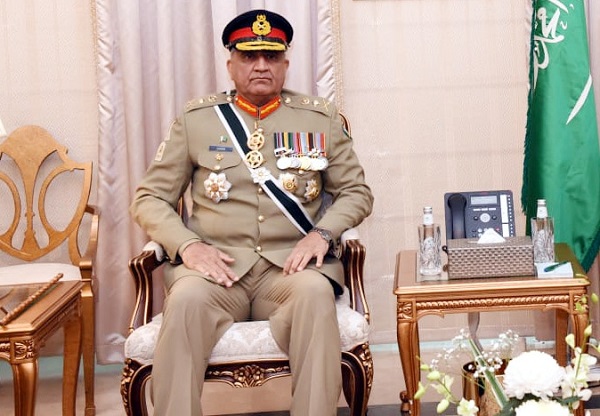Islamabad, Pakistan Army Chief Gen. Qamar Javed Bajwa’s term has been extended by three years citing the “regional security environment”.
Even before the official announcement, Bajwa’s continuation in office was seen as a foregone conclusion as in Pakistan, the army chief decides the duration of his own term even though the order for the extension of his term was signed by Prime Minister Imran Khan.
As an opposition leader in 2010, Imran Khan had opposed the extension to the country’s then army chief Gen. Ashfaq Parvez Kayani by the Yousaf Raza Gillani-led PPP government, stressing on following the “rule of law”.
In an interview with a news channel, Imran Khan had said: “In the First World War and the Second World War, no general got an extension,” arguing that bending the rule for one person weakened the entire system.
Bajwa, who became the Army chief on November 29, 2016, did not want to leave office at a time when Islamabad’s relations with India are at the lowest ebb and the US is preparing to leave Afghanistan, throwing open a new chapter in the region’s geopolitics.
He could not have left the office as the Bajwa doctrine giving greater powers to the provinces is still at play.
In terms of the internal political situation in Pakistan, Bajwa is said to be in total command as he played a key role in getting Imran Khan elected as the Prime Minister. A constant criticism thrown at Imran Khan is that he is selected, not elected.
The previous political dispensations had uneasy relations with Rawalpindi generals. Nawaz Sharif, during his tenures as Prime Minister, changed the army chiefs around half a dozen times.
Apart from handling the internal situation in the country, Bajwa is playing a direct role in driving foreign policy. He was in the US with Imran Khan on the crucial visit last month and is said to be the key man for Washington in its plans to exit Afghanistan.










